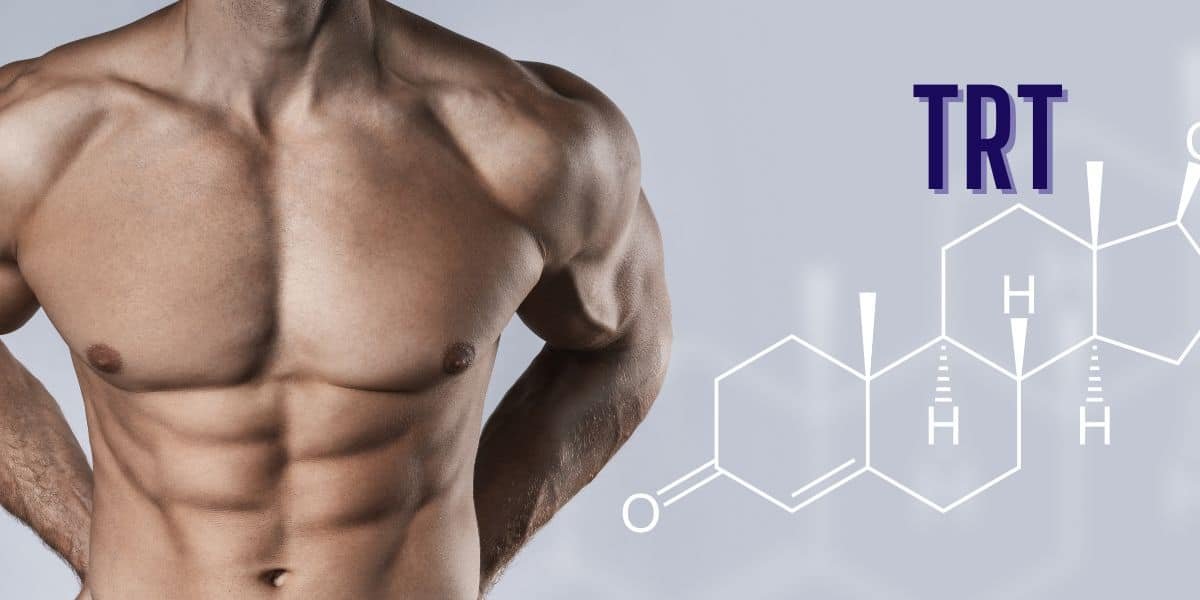Hormones play a vital role in our bodies, influencing everything from our mood to our weight, and even our sex drive. When hormones are out of balance, it can negatively impact our quality of life in many ways. Luckily, there is a treatment option that can help balance hormones and improve overall well-being: Testosterone Replacement Therapy (TRT).
TRT is a type of hormone therapy that involves replacing or supplementing the body’s natural testosterone levels. It is most commonly used to treat men with low testosterone levels, which can lead to symptoms such as fatigue, lack of motivation, decreased muscle mass, and even erectile dysfunction. But TRT can also be useful for women experiencing hormonal imbalances.
In this blog, we will explore how TRT works, the benefits of undergoing TRT, and what to expect during treatment.
Table of Contents
How TRT Works
TRT usually involves the prescription of a synthetic form of testosterone, which can be administered in several ways. Testosterone can be injected directly into the muscle, applied as a gel or patch to the skin, or even taken as a pill. The method of administration depends on several factors, including the severity of the patient’s hormone imbalance and their personal preference.
Once testosterone levels are normalized, patients often find that they experience increased energy levels, improved mental clarity, and enhanced sexual function. Many also report an increase in muscular strength and a decrease in body fat.
The Benefits of TRT
There are several benefits to undergoing TRT. For men, it can help relieve symptoms associated with low testosterone levels, such as fatigue, irritability, and loss of lean body mass. It can also help improve sexual function, boost mood, and increase motivation.

For women, TRT can help alleviate symptoms of menopause, such as hot flashes, night sweats, and vaginal dryness. It can also improve bone density, reduce the risk of osteoporosis, and enhance overall well-being.
In addition, studies have shown that TRT may have potential benefits for other medical conditions, including diabetes, cardiovascular disease, and depression.
What to Expect During Treatment
Before starting TRT, patients will undergo a full medical evaluation, including blood tests to determine testosterone levels and any underlying medical conditions. Once treatment begins, patients will need to come in for regular check-ups to monitor their hormone levels and adjust treatment if necessary.
While TRT can provide many benefits, it is not without risks. Potential side effects of TRT include acne, hair loss, breast enlargement, and fluid retention. However, these side effects are often mild and can be managed effectively through proper monitoring by a qualified medical professional.
Is TRT Right for You?
Deciding whether to undergo TRT is a personal decision that should be made in consultation with a qualified healthcare provider. TRT is not recommended for everyone, and it is important to consider potential risks and benefits before deciding to undergo treatment.
If you are experiencing symptoms of low testosterone or hormonal imbalance, consulting with a qualified healthcare provider can help determine if TRT is right for you. With proper monitoring and treatment, TRT can offer significant benefits to those experiencing hormonal imbalances.
Conclusion:
TRT can provide a safe and effective way to balance hormones and improve overall health and well-being. By understanding how TRT works, the benefits of undergoing treatment, and what to expect during treatment, individuals can make informed decisions about their healthcare. As with any medical treatment, it is important to consult with a qualified healthcare provider to determine if TRT is right for you. With proper monitoring and guidance, TRT can offer significant benefits to those experiencing hormonal imbalances.



